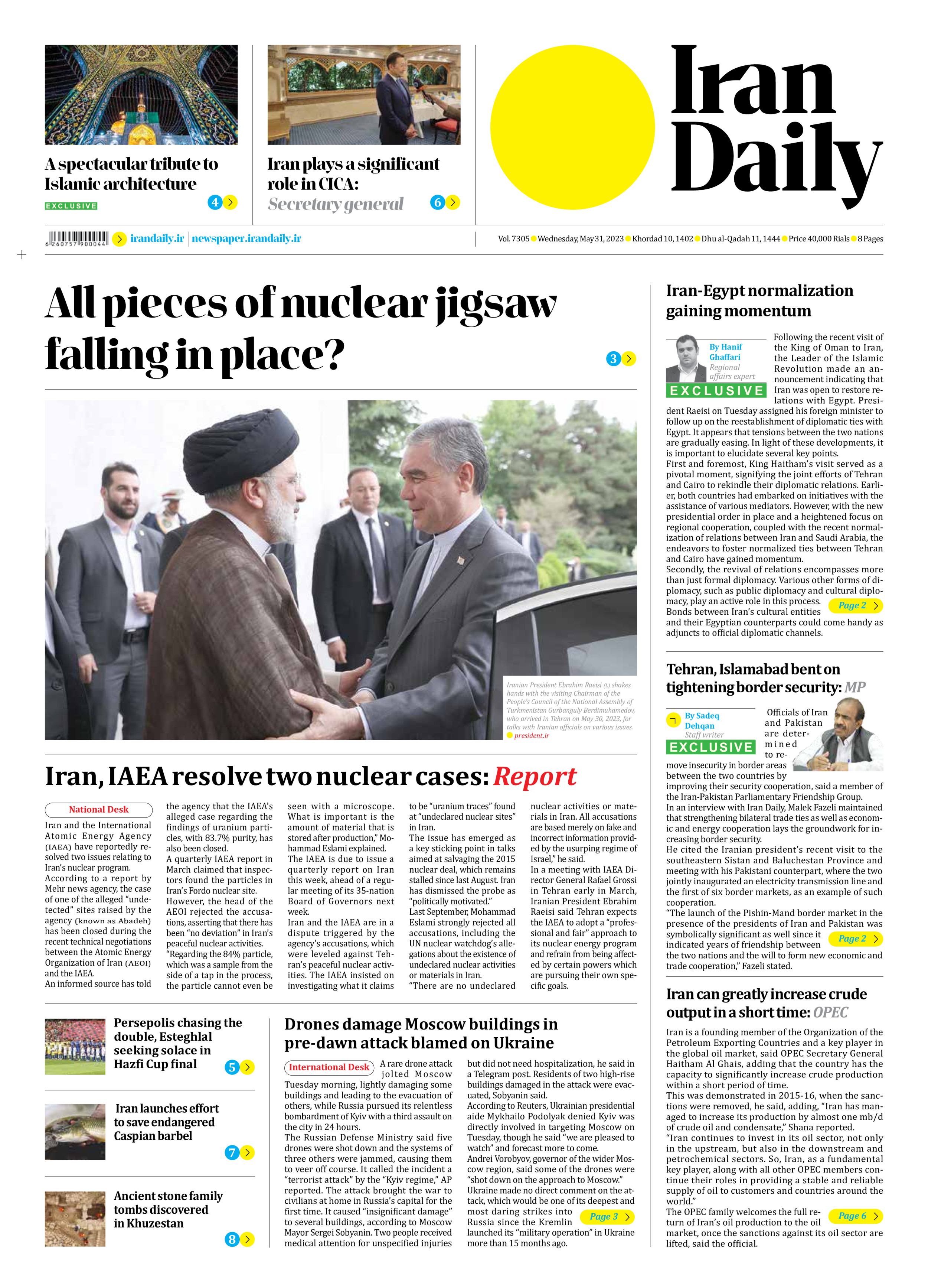
Copy in clipboard...
All pieces of nuclear jigsaw falling in place?
Staff writer
The pace of developments in the Western Asian region over the past couple of months has surpassed expectations. These developments have been characterized by cooperation and détente rather than confrontation. The Tehran-Riyadh agreement has been the catalyst for these noteworthy changes, with its positive regional repercussions extending to the conflicts in Yemen and Syria. The most recent example of this regional de-escalation process is the intensified efforts to thaw relations between Tehran and Cairo, which appear to have gained momentum following the visit of the Omani king to Iran.
These diplomatic maneuvers centered on Iran are not limited to its neighbors and the Middle East. Evidence suggests that diplomatic endeavors have also encompassed the standoff over Iran’s nuclear program.
Prior to the Omani king’s visit, speculation abounded that Haitham bin Tariq would bear significant messages to Iran. The normalization of Tehran-Cairo relations and revitalizing the nuclear negotiations were among the crucial matters that the monarch was expected to address and help resolve.
Concurrently with this visit, media reports have lent support to the notion that, alongside regional developments, there are also international undertakings concerning Iran’s nuclear case. It is as if pieces of a larger puzzle are gradually falling into place. A report by the “Oman Daily” newspaper described Haitham’s trip to Iran as a positive step to the nuclear gridlock, emphasizing that a breakthrough would be announced in due course.
Yesterday, Iranian media, citing informed sources, reported that two contentious issues in the technical negotiations between the Atomic Energy Organization of Iran and the International Atomic Energy Agency had been resolved. The news comes at a crucial juncture, as the agency’s Board of Governors is scheduled to convene from June 5 to 9. It appears that the cooperation and agreements between Tehran and the UN nuclear watchdog will positively impact the IAEA director general’s report about Iran’s atomic work.
Yet another indication, or another crucial element of the larger picture, has come to light in South Korea, where the “Korea Economic Daily”, citing diplomatic and government sources, reported that “South Korea and the US are discussing ways to release the $7-billion Iranian funds held in the Asian country”. However, as per the newspaper, the release, if implemented, “will come under stringent conditions that Iran use the funds only for public purposes such as UN dues and purchasing COVID-19 vaccines”.
“If all goes to plan, we expect our strained relationship with Iran to improve significantly,” said a Seoul government official.
In light of this, Mohammad Boroujerdi, head of Iran’s Ministry of Foreign Affairs’ Asia-Pacific Department, told “Iran Daily” newspaper on Saturday that signals had been received from South Korea and Japan indicating a desire to restore relations.
All these developments are unfolding while Iran’s Foreign Minister Hossein Amir-Abdollahian told the French daily “Le Figaro” that the diplomatic process and negotiations with the European Union on the nuclear issue are ongoing.
The top diplomat said he was in contact with Josep Borrell adding that the exchange of messages between Tehran and Washington continued through regional and even European intermediaries.
The aforementioned series of diplomatic efforts offer hope for fresh breakthroughs in the nuclear case following the regional progress. In the wake of Iran’s successful de-escalation with regional Arab nations, led by Saudi Arabia, it seems that one of the mechanisms exerting regional pressure against the revival of the JCPOA has been eliminated.
Now, perhaps one of the most critical elements needed to complete this puzzle is the IAEA chief’s report to the Board of Governors regarding Iran’s nuclear activities. Evidence indicates that the cooperation between Iran and the IAEA currently raises no cause for concern, unless pressure from opposing forces, spearheaded by Israel, redirects this optimistic trajectory at the last moment.







